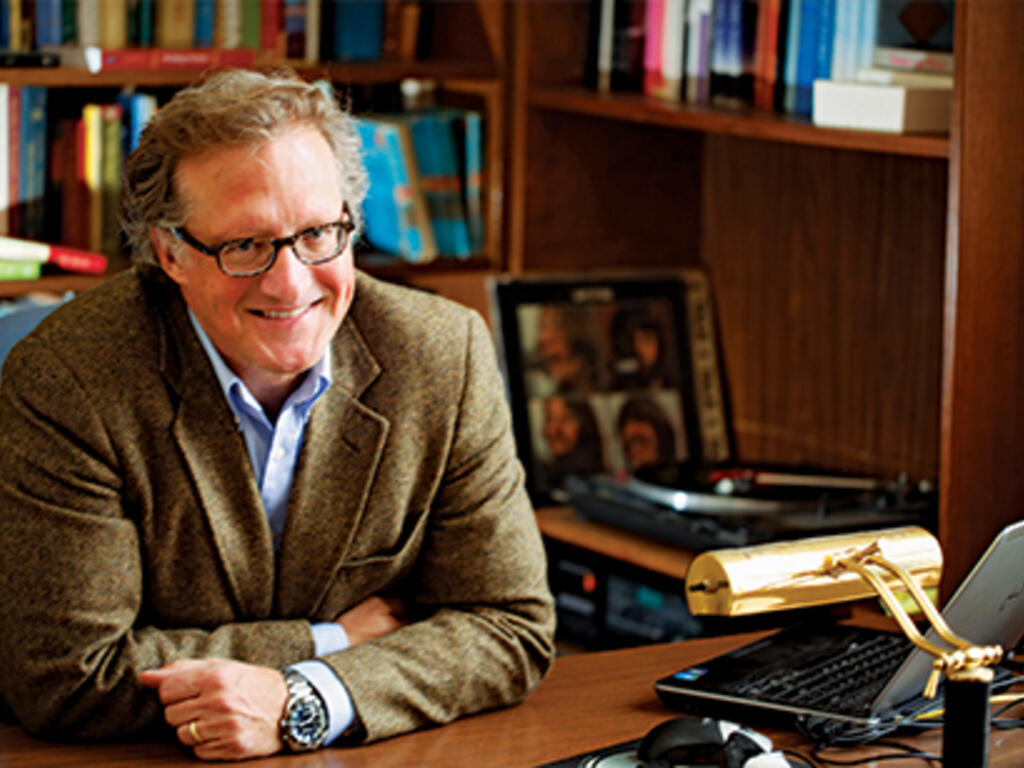In a corner office on third floor Palmer Hall, Professor Marshall Boswell wears headphones and listens to a Sony Walkman while he reads John Barth. On shelves to his left, a turntable awaits an album, perhaps the copy of Let It Be that leans beside it. Behind John, Paul, George, and Ringo, rows of books ranging from fiction to literary criticism to Norton anthologies ribbon along the wall. A black stand cradles an electric guitar across the room.
“I’m recreating my graduate school apartment in this office, and it’s conducive for productivity,” he laughs, referring to his surroundings as 1990s ephemera. “I wrote a dissertation once surrounded by all these records, so they help me write the next article on John Barth.” But don’t let the throwback interior design fool you into thinking that the English department Boswell currently chairs is in any way looking backward. Far from it. Instead, the words “energy” and “excitement” spill out when Boswell talks about the department’s growth and direction.
A lot of that excitement stems from future plans to add a creative nonfiction professor to the department’s writing faculty, of which Boswell is a member, along with novelist Mark Behr and poet Caki Wilkinson ’03. Recent curriculum expansions in film studies, Asian literature, African American literature, and multiethnic literature have also broadened the slate of class offerings for students.
“We are updating to supplement the more traditional, Eurocentric and literary history kind of department that we’ve been by teaching newer work, more globally integrated work, in concert with the more traditional work that we’ve always taught. That’s our vision: for our English majors to always be steeped in literary history, well-read across the canon, and, also, up to date,” Boswell explains.
The addition of another writer will free up faculty to add classes in fields such as screenwriting and journalism, for which there is already demand. And work is under way to create a film studies major to capitalize on existing talent and interest in what most likely would be an interdisciplinary option.
“The talent is here,” Boswell says. “We just need to harness it. And, you see, there’s a symbiosis here: If we could start out with screenwriting with this new position, screenwriting could go hand in hand with this new major. I think that’s where you can feel the energy and excitement.”
Certainly, Boswell knows the importance of reading both canonized and contemporary writers. His scholarly work Understanding David Foster Wallace(2003) was the first literary criticism of Wallace’s work, and has made Boswell a preeminent authority on the challenging writer, who committed suicide in 2008. Last fall, Boswell traveled to Paris to deliver the keynote address for an international conference on Wallace’s work.
In addition to his book on Wallace, Boswell has published the critical work John Updike’s Rabbit Tetralogy (2001); a collection of short stories, Trouble with Girls(2003); and a novel, Alternative Atlanta (2005).
